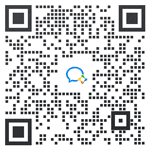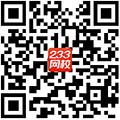21、请阅读Passage 1,完成第21-25小题。
Passage 1
The first time I questioned the conventional wisdom on the nature of a healthy diet, I was in my salad days, almost 40 years ago, and the subject was salt. Researchers were claiming that salt supplementation was unnecessary after strenuous exercise, and this advice was being passed on by health reporters. Al I knew was that I had played high school footbal in suburban Maryland, sweating profusely through double sessions in the swamp-like 90-degree days of August. Without salt pils, I couldn´t make it through a two-hour practice; I couldn´t walk across the parking lot afterward without cramping.
While sports nutritionists have since come around to recommend that we should indeed replenish salt when we sweat it out in physical activity, the message that we should avoid salt at al other times remains strong. Salt consumption is said to raise blood pressure, cause hypertension and increase the risk of premature death. This is why the Department of Agriculture´s dietary guidelines stil consider salt Public Enemy No.1,coming before fats, sugars and alcohol. It´s why the director of the Centers for Disease Control and Prevention has suggested that reducing salt consumption is as critical to long-term health as quitting cigarettes.
And yet, this eat-less-salt argument has been surprisingly controversial--and difficult to defend. Not because the food industry opposes it, but because the actual evidence to support it has always been so weak.
When I spent the better part of a year researching the state of the salt science back in 1998--already a quarter century into the eat- less-salt recommendations--journal editors and public health administrators were stil remarkably candid in their assessment of how flimsy the evidence was implicating salt as the cause of hypertension.
While ,back then, the evidence merely failed to demonstrate that salt was harmful, the evidence fromstudies publishes over the past two years actualy suggests that restricting how much salt we eat can increase our likelihood of dying prematurely. Put simply, the possibility has been raised that if we were to eat as little salt as the U. S.D.A. and theC.D.C. recommend, we´d be harming rather than helping ourselves.
Why have we been told that salt is so deadly? Wel, the advice has always sounded reasonable. It has what nutritionists like to cal "biological plausibility. "Eat more salt and your body retains water to maintain a stable concentration of sodium in your blood. This is why eating salty food tends to make us thirsty:we drink more;we retain water. The result can be a temporary increase in blood pressure, which wil persist until our kidneys eliminate both salt and water.
The scientific question is whether this temporary phenomenon translates to chronic problems:if we eat too much salt for years, does it raise our blood pressure, cause hypertension, then strokes, and then kil us prematurely? It makes sense, but it´s only a hypothesis. The reason scientists do experiments is to find out if hypotheses are true.
The N. I. H. has spent enormous sums of money on studies to test the hypothesis, and those studies have singularly failed to make the evidence any more conclusive.
With nearly everyone focused on the supposed benefits of salt restriction, little research was done to look at the potential dangers. But four years ago, Italian researchers began publishing the results froma series of clinical trials, al of which reported that, among patients with heart failure, reducing salt consumption increased the risk of death.
21.Salt pils seemto be a kind of substance which .
A. improves one's performance in sports competition
B. provides one with necessary salt supplementation
C.prevents one frombeing addicted to salt
D.prevents one frombeing addicted to salt
22、According to the passage, when were people recommended to eat less salt?
A.Around the early 1990s.
B.Around the early 1990s.
C.Around the early 1970s.
D. Around the early 1960s.
23、According to the author, eating more salt .
A. has short termeffect upon people's blood pressure
B. has long termeffect upon people's blood pressure
C.has negative effect upon people's health
D.has no effect upon people's health
24、What the passage tries to tel the reader is that .
A.food industry misled people about salt consumption
B.strict salt consumption is necessary for people's health
C. salt consumption has no direct impact upon people's health
D. the suggestion of strict salt consumption might be misleading
25、It can be inferred that the author is .
A.supportive of the eat-less-salt campaign
B.suspicious of the eat-less-salt argument
C. sarcastic of the eat-less-salt argument
D. neutral of the eat-less-salt argument
微信扫码下面二维码进入教师资格微信学习群。

备考推荐:历年教师资格证真题及答案
热点推荐:教师资格证试题库
零基础如何备考?233网校零基础取证班购课即送教材,5大基础班级教学,给您备考指路,免费试听>>



